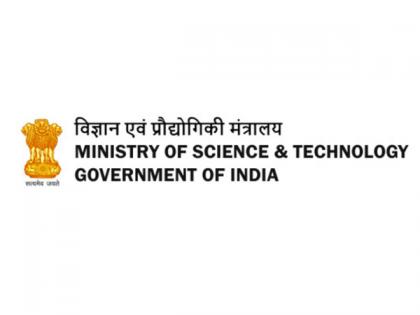DBT-NII receives Trademark for India's first indigenous tumour antigen SPAG9
By ANI | Published: June 4, 2021 11:08 PM2021-06-04T23:08:28+5:302021-06-04T23:20:10+5:30
India's first indigenous tumour antigen, SPAG9 discovered by Dr Anil Suri, head of Cancer Research Program at Delhi based National Institute of Immunology (NII), an Autonomous Institute of Department of Biotechnology (DBT), in 1998 has received the trademark ASPAGNII, the Ministry of Science and Technology informed on Friday.

DBT-NII receives Trademark for India's first indigenous tumour antigen SPAG9
India's first indigenous tumour antigen, SPAG9 discovered by Dr Anil Suri, head of Cancer Research Program at Delhi based National Institute of Immunology (NII), an Autonomous Institute of Department of Biotechnology (DBT), in 1998 has received the trademark ASPAGNII, the Ministry of Science and Technology informed on Friday.
Presently, ASPAGNII is being used in dendritic cell (DC) based immunotherapy in cervical, ovarian cancer and will also be used in breast cancer.
The team of DBT-NII, and clinicians at Cancer Institute, Adyar, Chennai, have been working for over the past two decades, to translate breakthrough that promises to add a highly potent weapon to the armoury against cancer, especially employing targeted cancer Immunotherapy.
"Immunotherapy is a new approach that exploits the body's inner capability to put up a fight against cancer. With this approach, either the immune system is given a boost, or the T cells are "trained'' to identify recalcitrant cancer cells and kill them. In this personalised intervention, those patients expressing SPAG9 protein can be treated with a DC-based vaccine approach. In a DC-based vaccine, the patient's cells called monocytes from their blood are collected and modified into what are called dendritic cells. These dendritic cells are primed with ASPAGNII and are injected back to the patient to help the 'fighter' cells, or T-cells, in the body to kill the cancer cells", the ministry informed.
The DC-based immunotherapy is safe, affordable, and can promote anti-tumour immune responses and prolonged survival of cancer patients, it said.
The Cancer Research Program has been funded by the Department of Biotechnology, while Dr Suri's collaborator, Dr. T Rajkumar, head of molecular oncology, who is conducting clinical trials in cervical cancer patients at Cancer Institute, Chennai, is being funded by the Department of Science and Technology, Government of India, to establish the Centre for Cancer Immunotherapy and to undertake these cancer trials.
The India Council of Medical Research (ICMR) had also funded the duo to undertake clinical trials using Dendritic cell-based vaccine in 75 recurrent/metastatic ovarian cancer stage IV patients employing ASPAGNII.
"Further with the funding support of the Department of Biotechnology in future, employing ASPAGNII, a phase 2 randomised controlled clinical trial to evaluate the role of metronomic chemotherapy and dendritic cell vaccine in recurrent hormone receptor-negative breast cancer will also be initiated at Cancer Institute, Adyar," the ministry informed.
Calling ASPAGNII isa true example of translational cancer research and the Atmanirbhar Bharat spirit, the ministry said: :It will eventually be helpful to patients in India and the world. This will be a real morale boost in affordable, personalised, and indigenous products for cancer treatment."
( With inputs from ANI )
Disclaimer: This post has been auto-published from an agency feed without any modifications to the text and has not been reviewed by an editor
Open in app